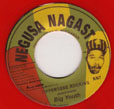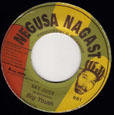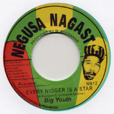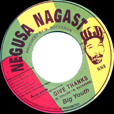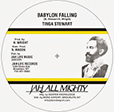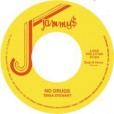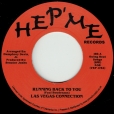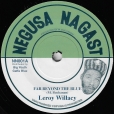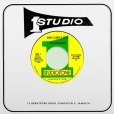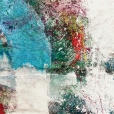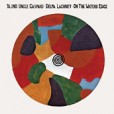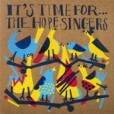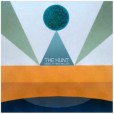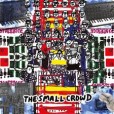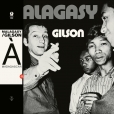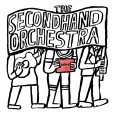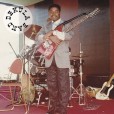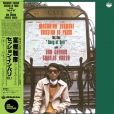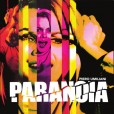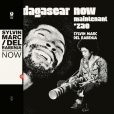Your basket is empty

Sweet, uptempo rock steady from Henry Buckley, in 1968, with backing from The Gaylettes. A more rootsy, Biblical edge to the B-side, which was originally coupled with Roland Alphonso’s How Soon.
The great deejay’s deliriously authoritative toast of Satta.
‘Why do the heathen rage? Let us break their bands asunder.’
Both sides are knockout.
The Willacy is terrific roots, rough and mystical, compacted and bristling, with fine trumpet.
On the flip is Big Youth’s toast of Gregory’s Look Before You Leap.
Ruggedly funky, tantalisingly rare do-over of Sly & The Family Stone, by Jackie Mittoo and the crew.
“In the beginning of the pandemic we decided to take a turn and move to a small beach close to São Paulo, right in the middle of the rain forest… water definitely took a major role in our lives. We were living right in between the ocean and a waterfall, it´d rain for days on a roll sometimes and it was an open house where we had the sound of rain 360 degrees around us… I kinda think our music has a little of those different dynamics of water in its different states. Also, it might seem strange but São Paulo is a city in the water too, and it has a very chaotic relationship with it.”
‘The music itself is difficult to pin down: always kinetic and driven by fluid, nimble percussion, with a freeness to the sound overall, but also discipline, as the pair harness and channel the elemental force from which they’ve drawn their inspiration. At times the lines between Takara’s skittish percussion and Boregas’ idiosyncratic synth work and sound manipulation blur into flowing rivers or torrents of sound — here, both water and sound have the ability to awaken in us different memories, and emotional or physical states.
‘We could say say their sound contains clear influences from jazz, classic dub, krautrock, and the outer limits of post-punk. Contemporary allies include Holy Tongue, Shackleton, Oren Ambarchi…’
Fragile, dignified performances by two of Cajun music’s finest and most unusual artists, originally released on 78 in the late 1920s. French vocals accompanied by guitar or fiddle, or sometimes both. Impeccable ballads and breakdowns. Old school tip-on cover.
The fabulous, legendary LP originally issued by Lumen in 1972, born out of several visits to Madagascar by Gilson and fellow musicians from Paris, and their collaborations with musicians on the island.
Fittingly the first trip was on May 13 1968, the day of the general strike in France: this is tumultuous, insurgent, joyous, blisteringly swinging, outernational Malagasy jazz, including a a charged, unmissable The Creator Has A Masterplan, and Avaradoha, a composition by Madagascan saxophonist Serge Rahoerson (who leads this recording), which was the anthem of the rotaka protests in 1972, bringing down the neo-colonial First Republic of Madagascar. The closer showcases various traditional Madagascan percussion instruments, played by the same trio which that year recorded Le Massacre Du Printemps, Gilson’s avant-noise homage in memoriam of Stravinsky.
Hot.
Led by guitarist Dekula Kahanga, veteran of the legendary Tanzanian dance band Orchestra Maquis Original; also featuring Congolese singer Gaby and musicians from Kenya, Uganda, Senegal and Sweden.
Hypnotic, infectious, graceful soukous; newly recorded, channelling thousands of rollickingly good nights out. (The band plays monthly at the not so glamorous club Lilla Wien in Stockholm.)
Free-flowing recordings made in Pakistan with members of the instrumental quartet Jaubi (including Zohaib Hassan Khan on sarangi).
These two sharpened their musical skills in the celebrated seja-jazz band from La Réunion, Le Club Rythmique. In 1967 Sylvin Marc put out a terrific funk 45, saturated in James Brown. Later, he would play bass for Nina Simone on her album Fodder On My Wings, whilst Del Rabenja would work with Manu Dibango.
In these 1972 recordings for Jef Gilson’s Palme label, they are joined by their Madagascan compatriots Ange Japhet, Gérard Rakotoarivony and Frank Raholison — comprising the same group of five which lights up Funny Funky Rib Crib by Byard Lancaster and Soul Of Africa by Hal Singer & Jef Gilson.
The first side showcases the valiha harp-playing of Del Rabenja: three excursions in tribute to the great Rakotozafy, hypnotic and full of spirituality. The second side presents four compositions by Marc — free, grooving and cosmic.


